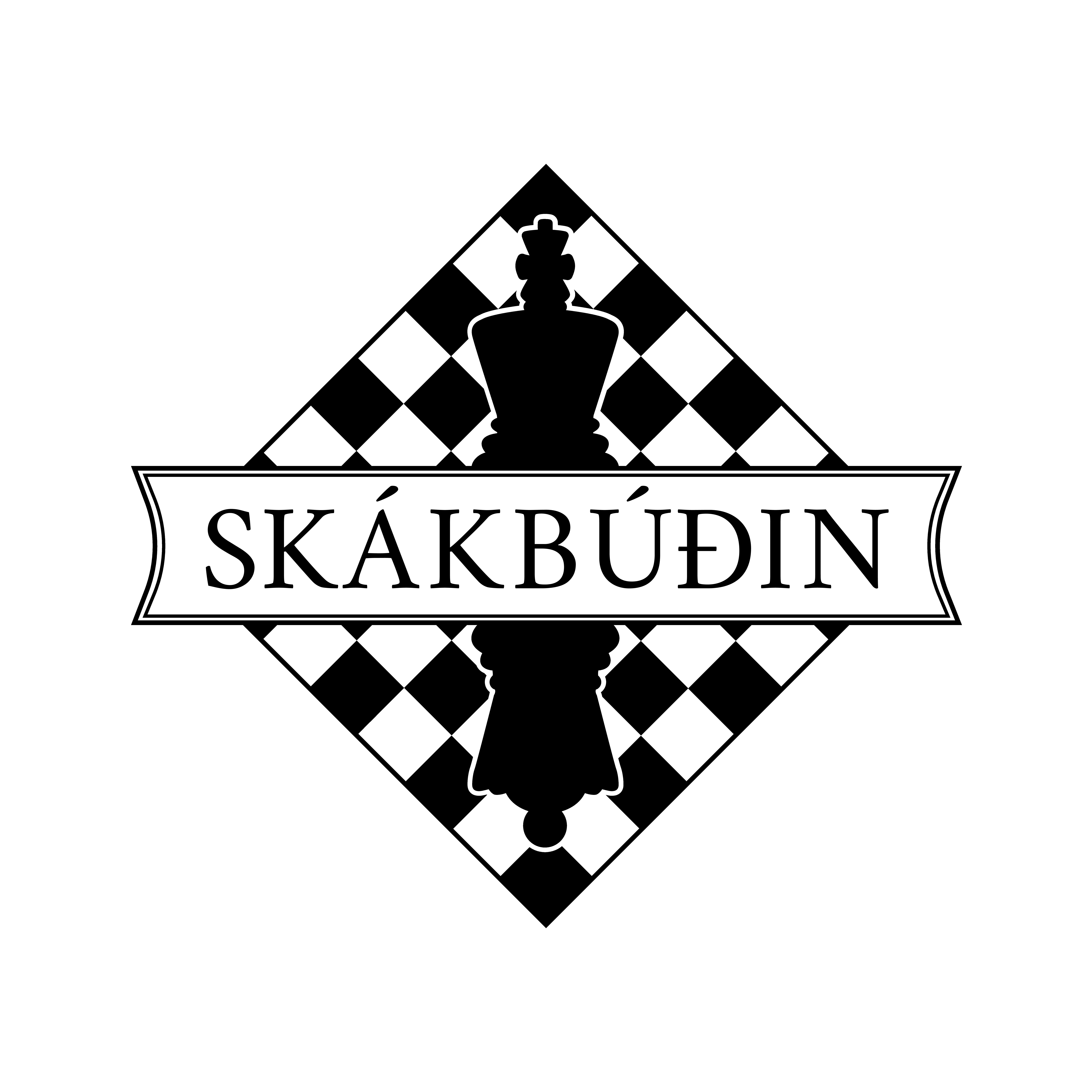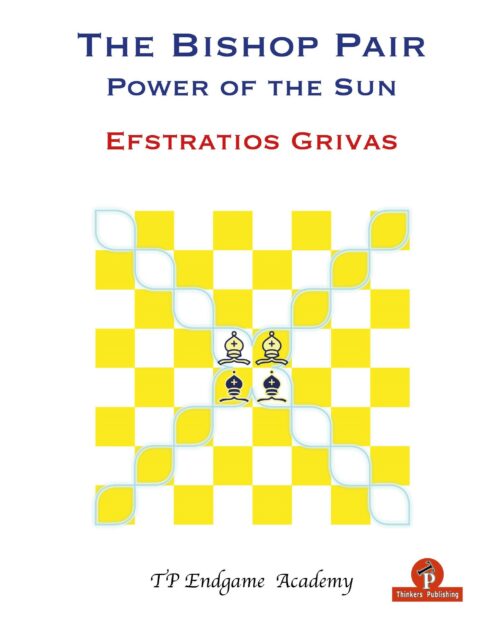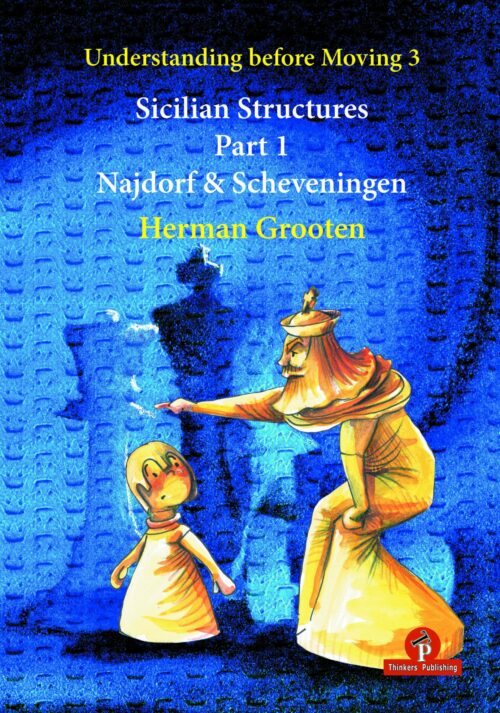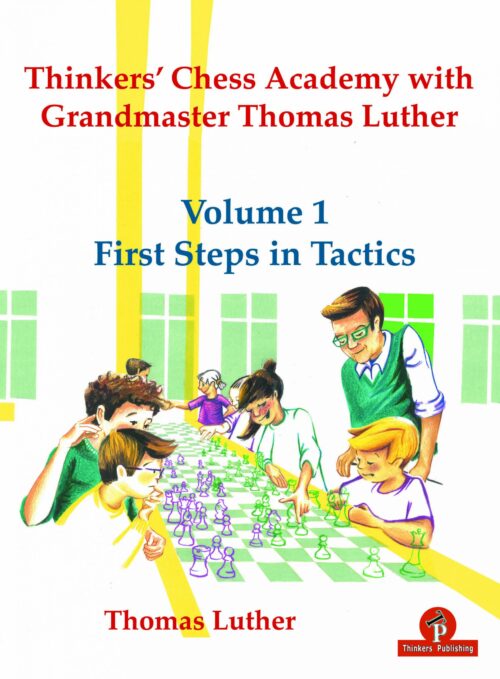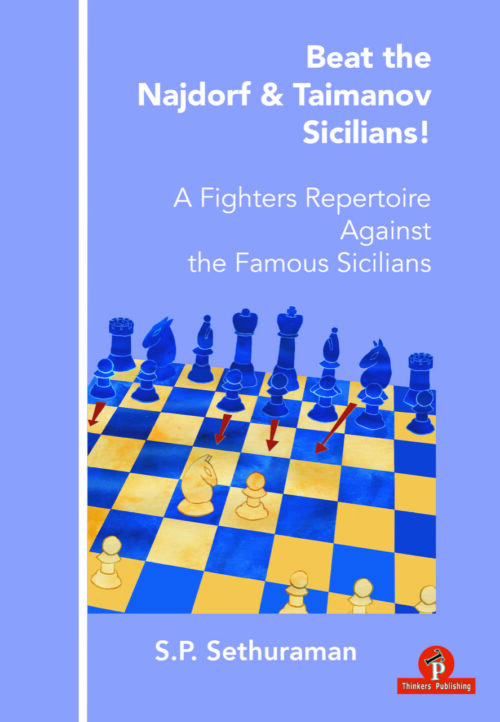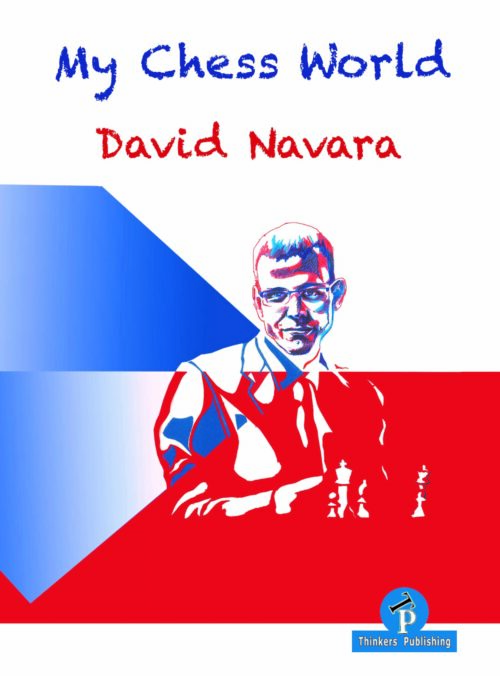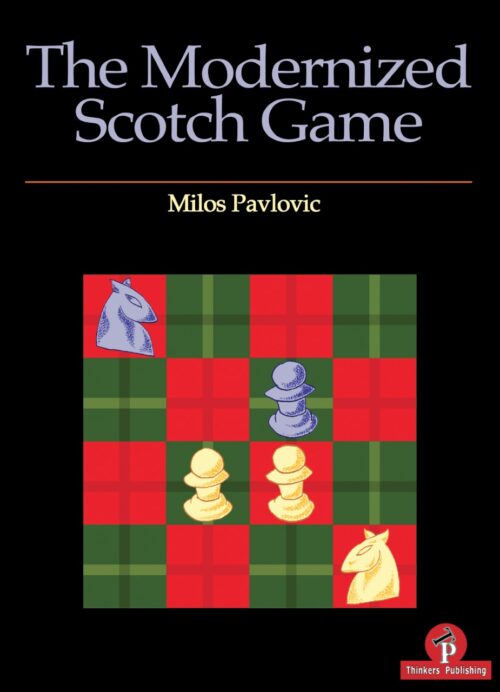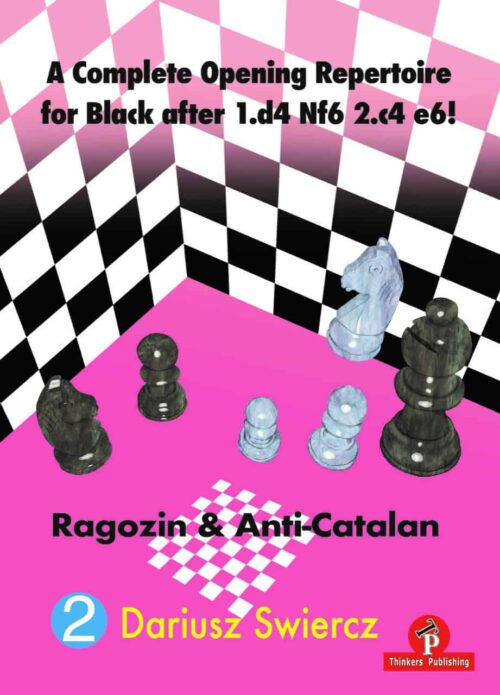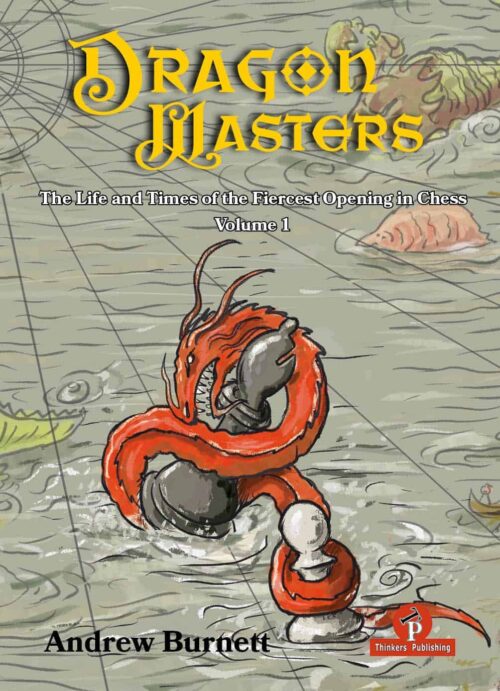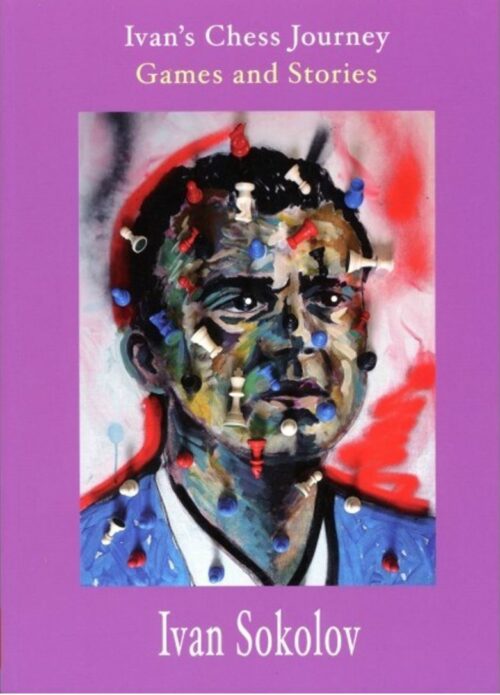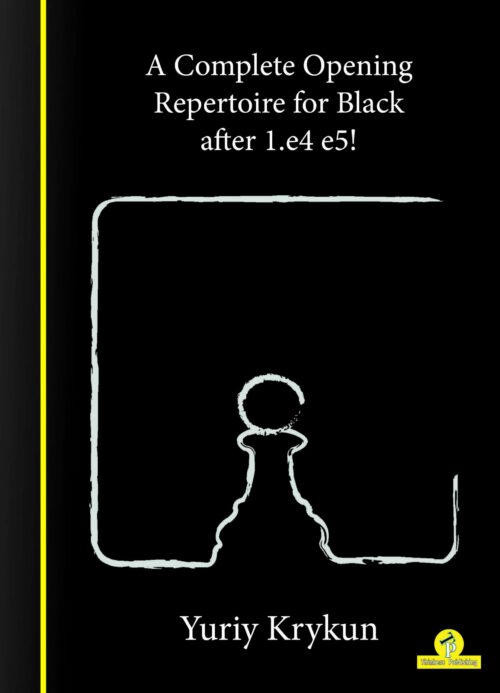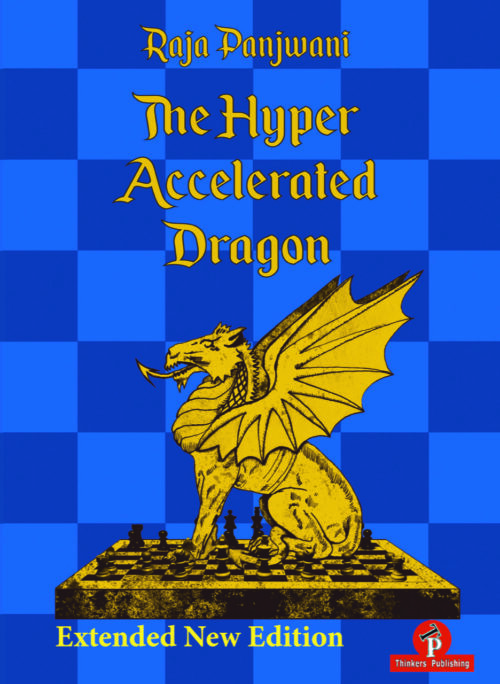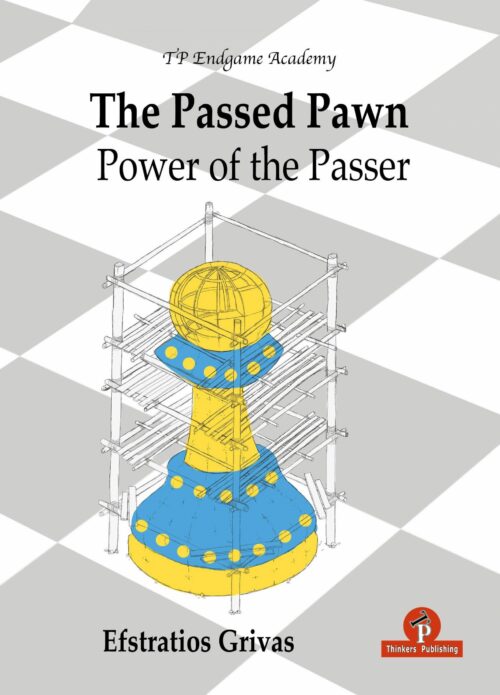-
Á útsölu!Endgame theory teaches us two fundamental issues: First, how to extract the maximum from a basic theoretical position with little material, where the experts (from practice comprising thousands of games) have reached definite conclusions. Second, the way in which we can handle an endgame, depending on the material remaining on the board, and the ideas and plans we should employ. The purpose of this series is to introduce the reader to advanced training concepts, using the same methods of presentation and instruction that were taught to great players by famous trainers that they have worked with. The series will start with the topic of “the Bishop Pair” and we will examine how to handle this “power of the sun” coupling.
-
Á útsölu!“This book is not a pure (auto)biography, rather a games collection. It consists mainly of interesting high-class games played by me, including many losses. Most of the games are preceded by accompanying texts, which vary from essays to tournament reports. The title of the book might seem presumptuous, but I wanted to show how I see or experience the competitions without denying the chess worlds of others. While the texts are mostly light and subjective, at the same time I tried hard to stick to the facts and provide some food for thought.” ~ David Navara
-
Á útsölu!“Credit can mostly be given to Kasparov for reviving this old opening, but there are many others who have contributed to exploring new ideas and forging new paths. A lot of discoveries have been made by some young grandmasters who don’t shy away from analysing deep tactical solutions with the aid of the silicon beast.” ~ Milos Pavlovic
-
Á útsölu!
- A repertoire for Black providing all answers to White’s options.
- Paced with exciting games, original ideas and analysis.
- Thorough and up-to-date coverage of one of the most topical openings.
- Positionally motivated lines, but none the less never forgetting the needed dynamics.
- Aggressive ideas to tackle head-on white’s solid set-ups.
-
Á útsölu!DragonMasters volume 1 charts the history of the most exiting and dangerous opening known to chess – the Dragon Variation of the Sicilian Defense. Unlike almost all other books on the Dragon, the focus is not purely on theoretical development. Instead, the author has combined the mist historically important games, the famous players who chose to fight either side (sometimes both sides!) of the opening, and the moist unexpected and interesting stories featuring the Dragon. World Champions, contenders of the crown, code-breakers, revolutionaries in every sense of the world – all feature in this remarkable and entirely unique look into the history of an opening variation. as the ancient may say: Here be Dragons!
-
Á útsölu!Ivan Sokolov was one of the most furious attacking and creative players of his time. The author presents an overview of is his Life in Chess, full of entertaining unpublished material. He is not shy to share his opinions and promises the reader a personal roller coaster loaded with fun stories and unexpected twists. We are convinced you will enjoy the ride!
-
“1.e4 e5 is not just an opening. It is repertoire that represents our game as a whole. It is something players of all styles will enjoy due to the countless possibilities 1…e5 provides. Hopefully, learning 1…e5 will also make you a better player” ~ Yuriy Krykun
-
Á útsölu!The Hyper Accelerated Dragon is recommended for all players that are eager to enter critical lines in this exciting Sicilian Opening!
-
Á útsölu!“A passed pawn must be blockaded, so as to have its power restrained as much as possible. The minor pieces (knight or bishop) are ideal for this purpose, as they can rarely be forced to retreat by enemy action. On the other hand, the major pieces (queen and rook) find it difficult to achieve a stable blockade as is easy to harass them, while one must also consider that, for such valuable pieces, dealing with a mere pawn cannot be an efficient form of employment. Taking the above into account, it becomes clear that the side with the passed pawn should seek to exchange minor pieces and retain the major ones; the opposite applies to the defending side.”
skákbækurTómas Veigar Sigurðarson2023-06-12T16:33:59+00:00
